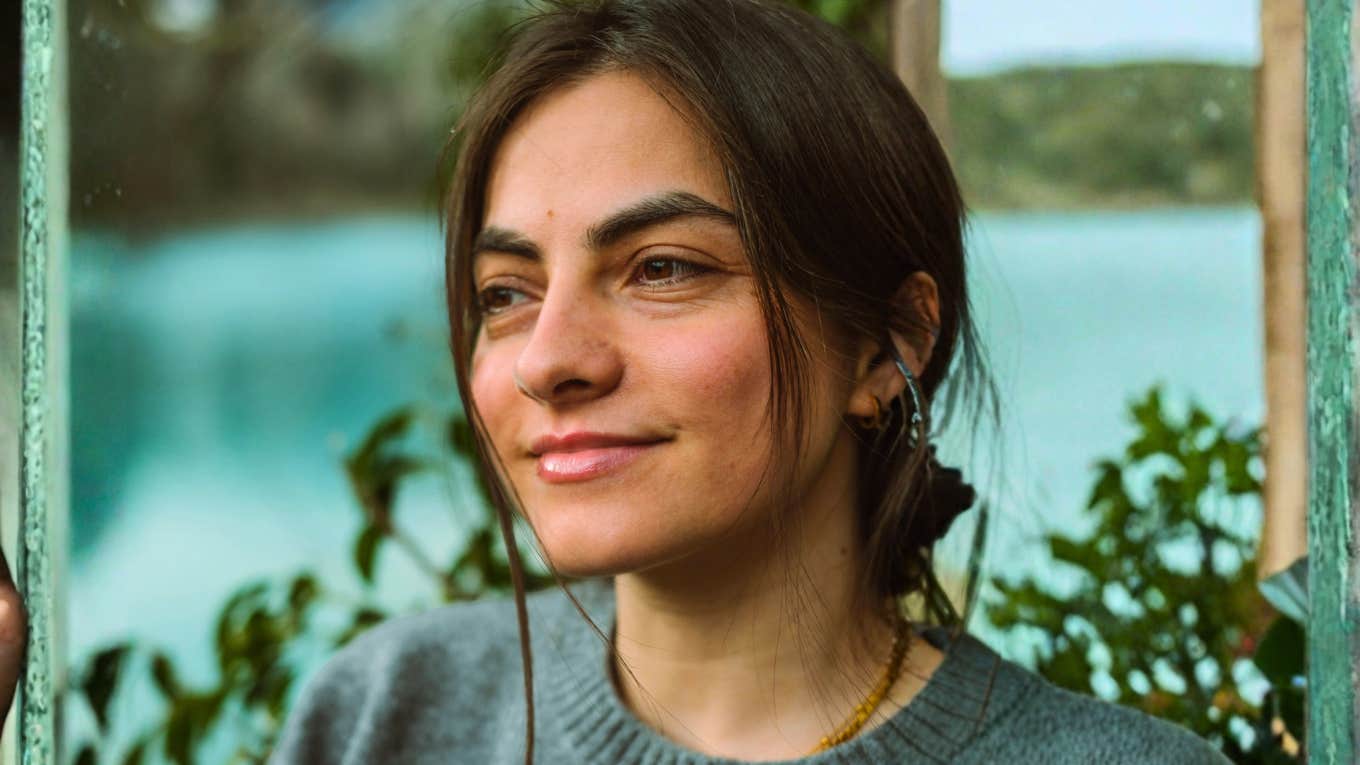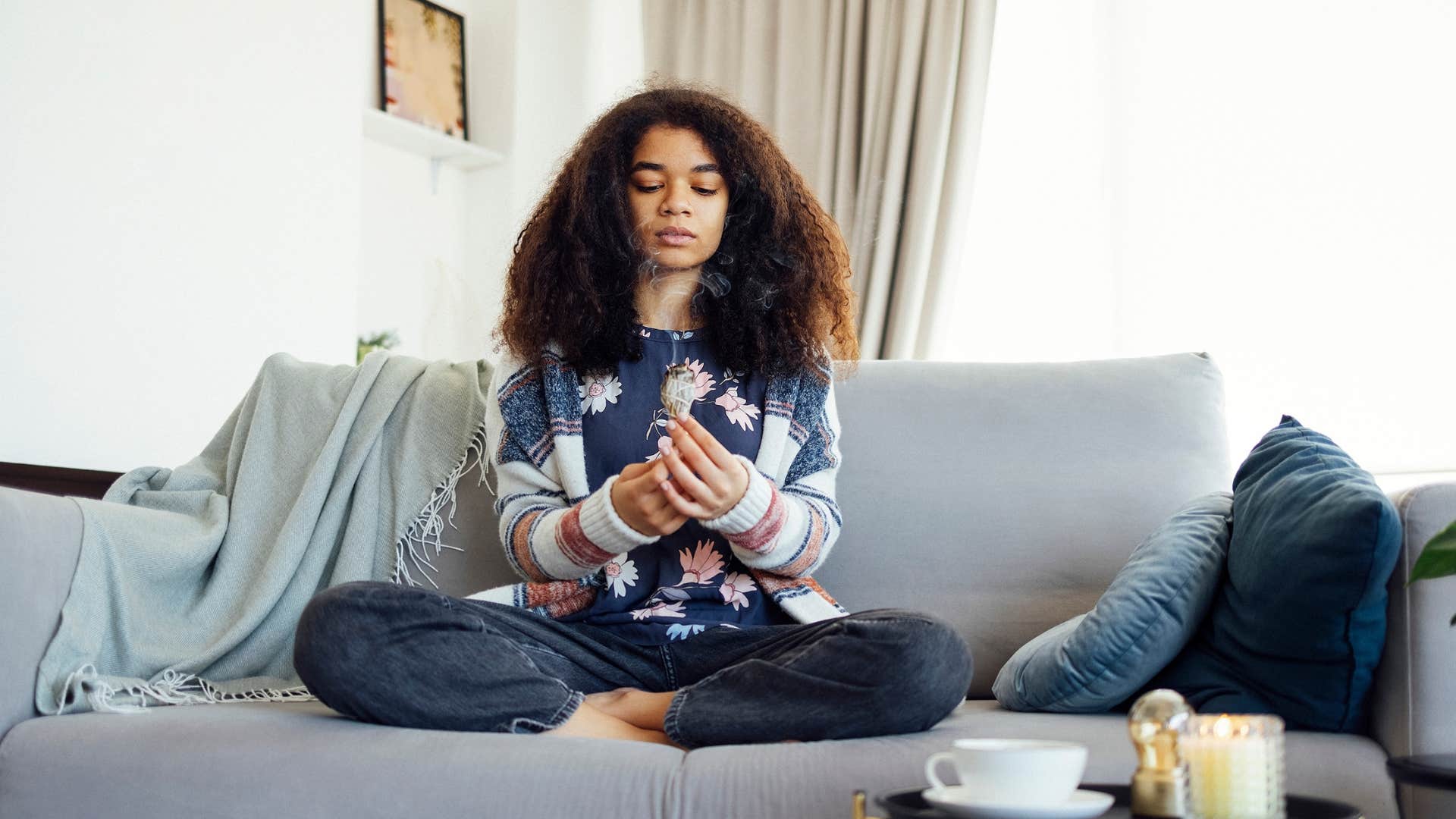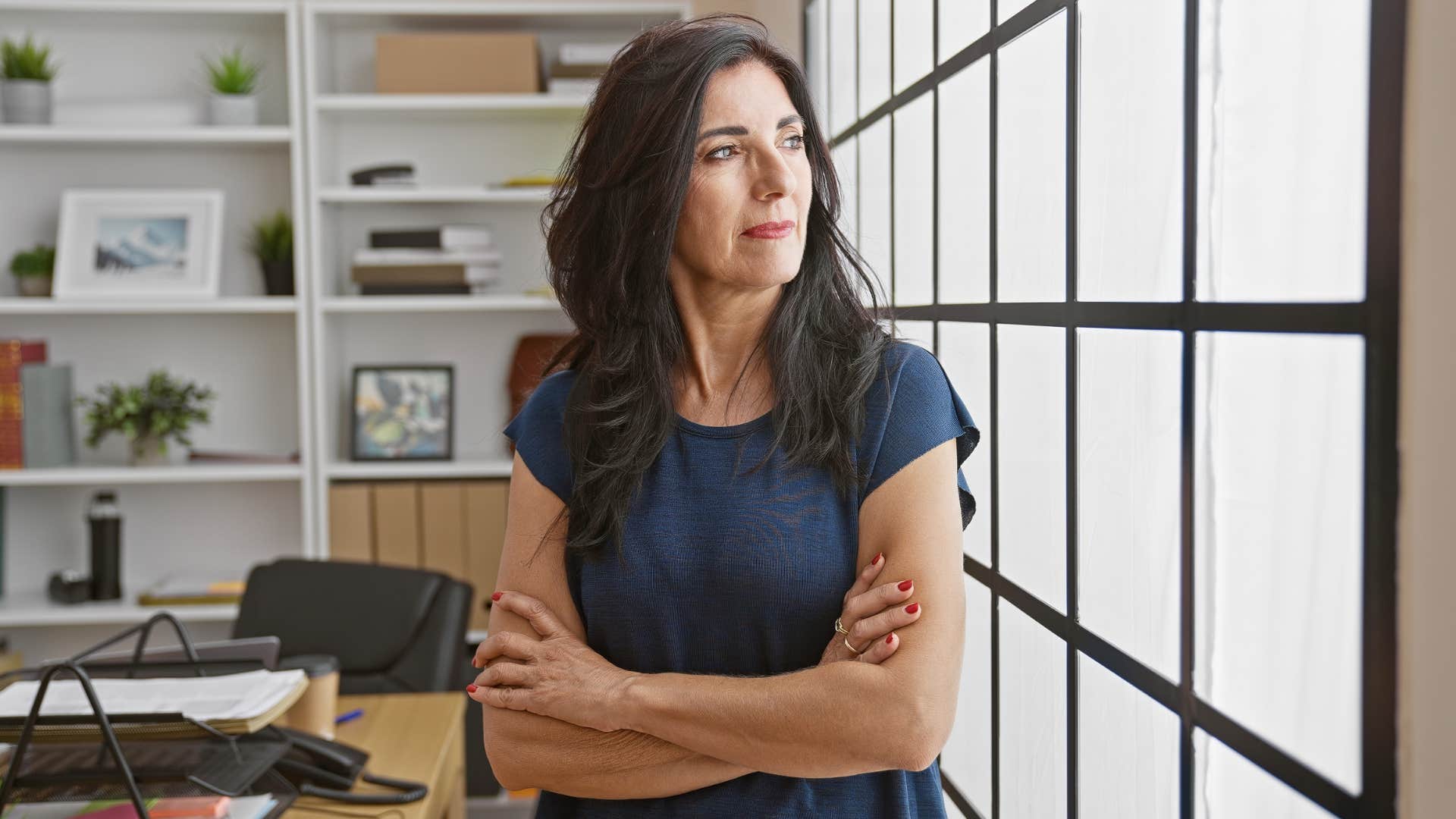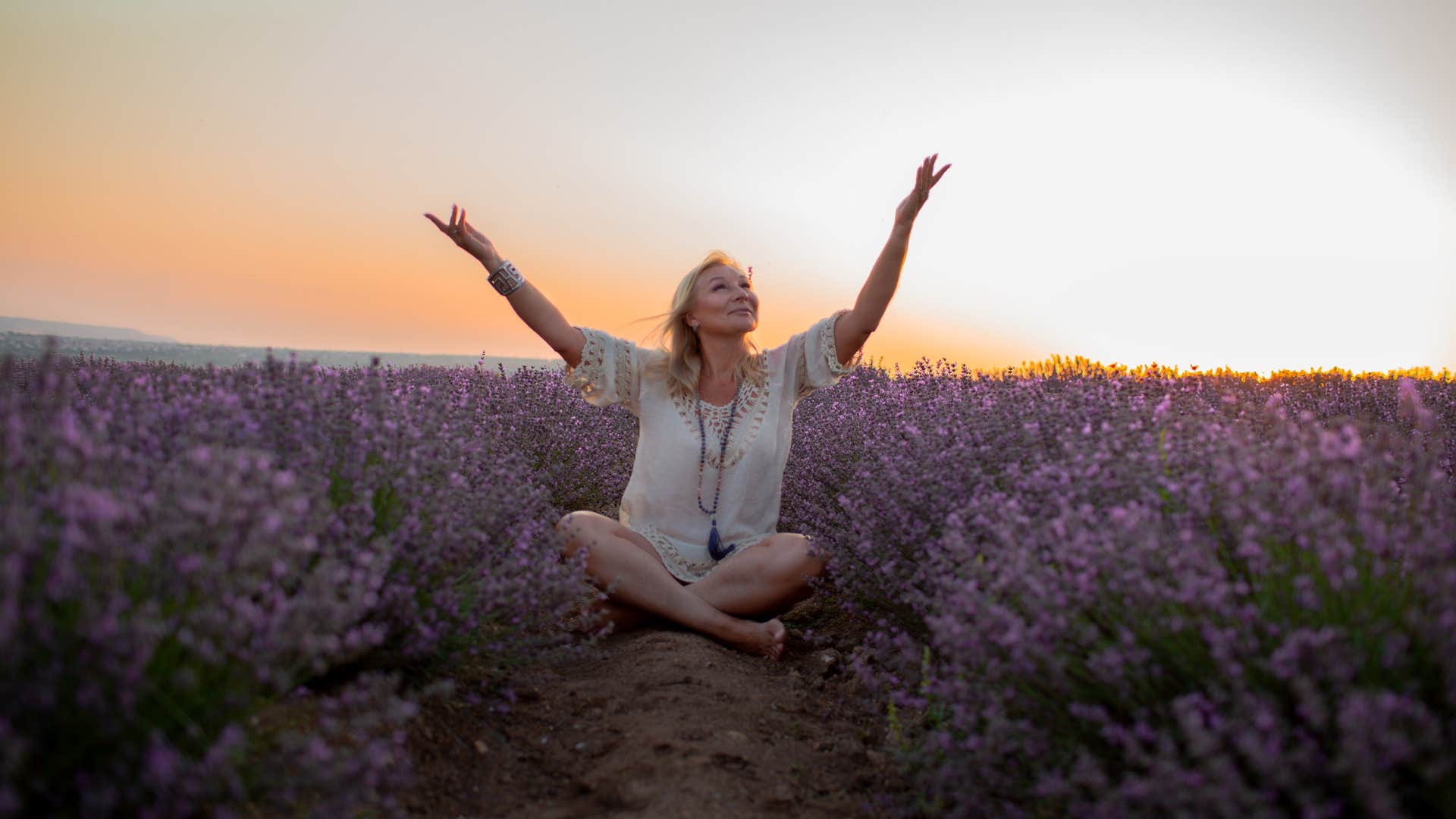People Who Crave Real Spiritual Depth Do 8 Things To Find An Authentic Expression Of The Divine
When you're spiritual but not religious, finding an authentic from of expression can be challenging at first.
 Gülşah Aydoğan | Canva
Gülşah Aydoğan | Canva So you want to practice spirituality? Awesome! What does being spiritual mean to you? When you think of spirituality, how do you think about it, and how can you authentically express it every day?
If you're non-religious, you may have grown up in your parents' church, and somewhere along the way, you decided religious philosophy didn't agree with what you thought or felt inside. Or, maybe you didn't grow up in an organized religion, but you're curious about the subject.
Regardless of the "why," look to those who are genuinely connected with the divine for inspiration.
People who crave real spiritual depth do 8 things fo find authentic expression of the divine:
1. Separate spirituality from religion where appropriate
 Dasha Petrenko via Shutterstock
Dasha Petrenko via Shutterstock
If you're spiritual but not religious, you're not alone. Many people question a church, mosque, or temple's teachings. Did you have an experience that couldn't be explained by religion? Did your thoughts about what is true contradict what the religion was explaining?
Depending on your nature and experience, you may have given up looking for a connection to something more for a time, but now you are beginning to search for options that resonate with you. Some kind of spirituality fulfills and fits you beyond what you have or haven't experienced.
2. Listen to and trust your inner wisdom
 Maridav via Shutterstock
Maridav via Shutterstock
You may have sensed something you couldn't see or hear, but you felt was present. You may have had an inner knowing that even though things around you were falling apart, you would be OK. You may have had a sense that something was going to happen — and then it did.
These experiences are common and are sometimes not addressed by traditional religion. Do these questions arouse your curiosity? Some spiritual practices, like Hinduism and Christian mysticism, address these questions. These might be areas for you to explore.
3. Find your motivation
 Krakenimages.com via Shutterstock
Krakenimages.com via Shutterstock
What is it that motivates you to explore spirituality? Take a moment and reflect. Go inside. Move out of your thoughts, and see if you can put your awareness in the center of your chest. Allow your body to rest and relax into yourself.
What are you aware of? Is there tension in your body, your chest? See if you can breathe into your tension and, on the outward breath, let it release. Do it again until you feel real relaxation. Do you feel more peaceful?
Most disciplines ask you to connect to your inner spaces: your body, mind, and feelings, as starting points to spiritual awareness and practice. Are you looking for peace? Joy? Love? Freedom? Abundance? You are human! We all want these.
In my own journey, I've explored multiple styles of spirituality. I've concluded no one way fits everyone.
4. Find your own path
 maxbelchenko via Shutterstock
maxbelchenko via Shutterstock
There are many ways to find "All-That-Is," or whatever you call the experience. You can start to practice your own brand of spirituality by finding a method that helps you notice and connect more often with what is going on inside you, in your thoughts, feelings, and body.
Mindfulness techniques are popular. These use breath and one-pointed focus to help stop the busy mind, creating calm and more present moment awareness. They help to deal with the chaos and confusion of life.
Some approaches also suggest you can cultivate a personal relationship between you and something beyond you. You could define this as Divine, All-That-Is, Creation, Quantum Field, and more. How do you feel about that idea? Are you looking for a relationship with something beyond you? Will that motivate you to practice spirituality every day?
Different styles suggest the relationship leads you into more of who you are and consequently more joy, more peace, and more love, because the divine is love, joy, and peace, and you are part of the divine.
5. Understand you are part of the divine
 PeopleImages.com - Yuri A via Shutterstock
PeopleImages.com - Yuri A via Shutterstock
This begs the question: Who are you? Do you feel like there's more to you than your thoughts, feelings, and body? Are you curious enough to explore it?
I encourage you to reflect, go inward, move out of your intellectual analysis, and feel into the questions. Take a moment and feel. How does your body feel? Your mind? Your emotions?
This is an exercise in self-awareness. And, if we are to make a relationship with the spirit, it's much easier to be conscious if we are connected to ourselves. Other frameworks like Buddhism say there's no self and your goal is detachment from everything you're aware of to relieve suffering and experience that, "we are merely a part of the ceaseless becoming of the universe."
6. Find your place and your process
 PeopleImages.com - Yuri A via Shutterstock
PeopleImages.com - Yuri A via Shutterstock
Seek spirituality through activities and environments that make you feel safe and peaceful. Many experience a sense of spiritual connection when they're in nature. Being on a mountaintop with a magnificent view, or near the ocean with its vast power, or looking at a flower or a bird, or any of nature's bounty.
Seeking out whatever makes you feel safe, calm, loving, joyful, free to be you, and grateful could be a starting point to practice spirituality every day. Perhaps it is none of the above. Maybe when you're being a parent or helping a friend are the times that you're most at peace. The important thing is to decide what works for you.
What are you seeking, and what have you noticed brings you to that? Bring more of that into your life. Then your practice can be to stay aware of yourself, how you feel, and what you think.
If you notice your feelings going off the rails or your thoughts getting crazy or unfocused, practice what you've found brings you back to your inner peace. If you haven't found anything in particular yet that helps you re-center or feel joyful or leads you to what you are seeking, pick something from this article and explore that.
7. Keep looking until you find what feels right
 fizkes via Shutterstock
fizkes via Shutterstock
Some teachers say, "Spirituality isn't about reaching a goal; the answer is the journey." Or "There's no need to seek, just receive and be." My journey took me all over the place, and I have been on this adventure for about 50 years, and I love it. I have grown immeasurably in all ways. It's always new. It's supportive. It's peaceful, joyful, freeing.
I have so much gratitude for all in my life and everywhere. My life isn't free of struggle, but I have my style — my connection that re-centers me and gives me peace. I have grown in love with myself and all things.
8. Incorporate gratitude for a rich spiritual practice
 Veronika Zelenina via Shutterstock
Veronika Zelenina via Shutterstock
In my meditation, the words "In all things be grateful" showed up. From my experience, gratitude is one exercise that, when you consciously practice it, can lead you to the love, joy, freedom, abundance, and peace you may be seeking.
Wake up and find what you're grateful for. Is it that you woke up? Or that you have breakfast? Or that you live in a house and that your lights turn on? Or that your puppy loves you?
Gratitude takes you out of your thoughts and into your hearts, your feelings. When you're grateful for something, do you calm down? Does it lead you to joy? Or love? Whatever you notice that makes your heart melt, be with that. Let the feeling of gratitude soak into your body, mind, and heart.
If you connect with the idea that spirituality includes love and peace, this is one simple way for you to practice spirituality every day as a non-religious person.
Ann Naimark is a marriage and family therapist who has been in practice for over 30 years. She's the author of A Touch of Light, Opening to the Love that is You, and All Creation.

